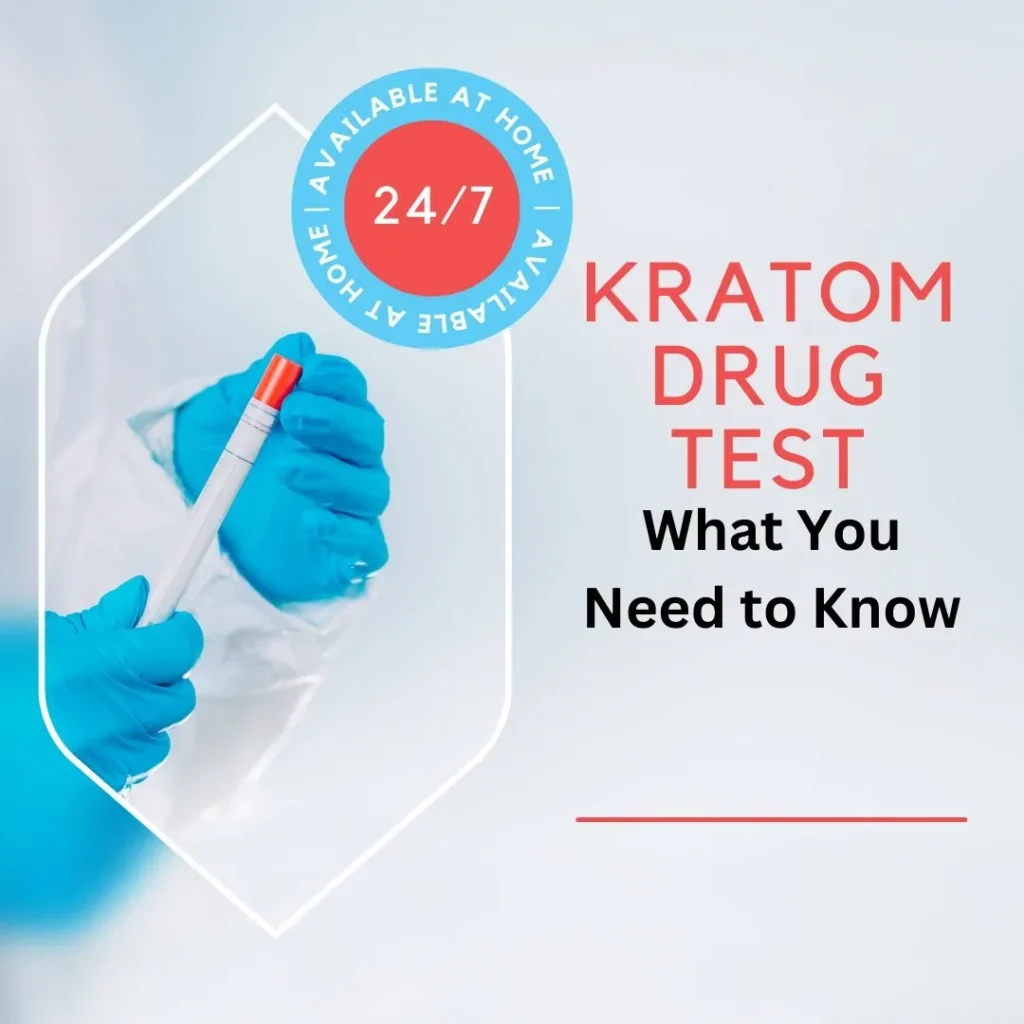Kratom Drug Test: What You Need to Know
Its is important to know about Kratom Drug Test: What You Need to Know. Kratom is a tropical tree that is native to Southeast Asia, and its leaves have been used for centuries for their medicinal properties. The leaves of the Kratom tree contain alkaloids that can produce a wide range of effects, including pain relief, relaxation, and stimulation. In recent years, Kratom has gained popularity in the United States as an alternative to prescription pain medication, and some people have even started using it recreationally.
However, Kratom is not without its risks. One of the concerns related to Kratom use is the possibility of failing a drug test. Kratom contains alkaloids that can be detected in urine drug tests, and some employers have started testing for Kratom in their drug screening protocols. This has led to increased interest in Kratom drug testing and the development of new testing methods to detect Kratom use.
Key Takeaways
- Kratom is a tropical tree native to Southeast Asia that has been used for centuries for its medicinal properties.
- Kratom contains alkaloids that can produce a range of effects, including pain relief and stimulation.
- Kratom drug testing has become more common in recent years due to concerns about its potential risks, and new testing methods are being developed to detect Kratom use.
Understanding Kratom Drug Test
Origins and Uses
Kratom, also known as Mitragyna speciosa, is a tropical tree native to Southeast Asia, particularly Indonesia, Thailand, and Malaysia. The leaves of the tree have been used for centuries in traditional medicine to treat various ailments, including pain, fatigue, and diarrhea. Kratom leaves contain active compounds called alkaloids, which are responsible for its medicinal properties.
In addition to its traditional uses, kratom has gained popularity in recent years as a recreational drug and as a tool for managing opioid withdrawal symptoms. Kratom is available in various forms, including capsules, powder, and liquid extract. It is often marketed as a natural alternative to prescription painkillers and as a mood enhancer.
Legality and Regulation for Kratom Drug Test
The legal status of kratom varies by country and region. In the United States, kratom is legal at the federal level, but some states and cities have banned its sale and possession. The U.S. Food and Drug Administration (FDA) has not approved kratom for any medical use, and has raised concerns about its safety and potential for abuse.
Kratom is not currently regulated by the U.S. Drug Enforcement Administration (DEA), but the agency has listed it as a “drug of concern” and is currently evaluating its potential for abuse and dependence. Some employers and drug testing agencies have started testing for kratom use, particularly in industries where safety is a concern, such as transportation and healthcare.
It is important to note that kratom has not been extensively studied for its effects on the body, and its long-term safety is not well understood. Users should be aware of the potential risks associated with kratom use, including addiction, overdose, and adverse interactions with other drugs and medications.
Overall, understanding the origins, uses, and legal status of kratom can help individuals make informed decisions about its use and potential risks, particularly in the context of drug testing.
Kratom Drug Testing
Types of Drug Tests for Kratom
Drug testing for Kratom is not a standard procedure in most workplaces. However, some employers may require their employees to undergo drug testing, including Kratom testing. There are different types of drug tests used to detect Kratom in the body, including:
- Urine drug test: This is the most common type of drug test used to detect Kratom. It can detect Kratom for up to 7 days after use.
- Blood drug test: This type of drug test can detect Kratom for up to 24 hours after use.
- Hair drug test: This type of drug test can detect Kratom for up to 90 days after use.
Detection Window for Kratom Test
The detection window for Kratom depends on various factors, including the type of drug test used, the dosage of Kratom consumed, and the frequency of Kratom use. As mentioned earlier, Kratom can be detected in urine for up to 7 days after use, in blood for up to 24 hours after use, and in hair for up to 90 days after use.
Factors Affecting Kratom Detection
Several factors can affect Kratom detection, including:
- Dosage: The higher the dosage, the longer Kratom can be detected in the body.
- Frequency of use: Frequent use can lead to Kratom accumulation in the body, which can increase the detection window.
- Metabolism: People with a slower metabolism may have a longer detection window than those with a faster metabolism.
- Age: Older people may have a longer detection window than younger people.
In conclusion, while Kratom drug testing is not a standard procedure in most workplaces, some employers may require their employees to undergo drug testing, including Kratom testing. The detection window for Kratom depends on various factors, including the type of drug test used, the dosage of Kratom consumed, and the frequency of Kratom use.
Pharmacy Technician Certification
Becoming a certified pharmacy technician is a great way to advance your career in the pharmaceutical industry. The Pharmacy Technician Certification (PTCB) exam is a national certification exam that is required by many states in order to become a licensed pharmacy technician.
Preparing for the PTCB Exam
To prepare for the PTCB exam, it is recommended to utilize a variety of study materials, including textbooks, online resources, and practice tests. One popular resource for PTCB exam preparation is the PTCE Practice Test. This practice test is designed to simulate the actual PTCB exam, giving test-takers an idea of what to expect on test day.
Another useful resource for PTCB exam preparation is the PTCB Exam Sample. This sample test provides test-takers with an idea of the types of questions that will be on the actual exam. It is important to note that the PTCB exam is constantly changing, so it is important to stay up-to-date with the latest exam information and study materials.
Utilizing PTCE and PTCB Practice Tests
In addition to the PTCE Practice Test and PTCB Exam Sample, there are a variety of other practice tests available for those preparing for the PTCB exam. These practice tests can be found online or in print, and can be a valuable tool for test-takers to assess their knowledge and identify areas where they may need additional study.
One popular online resource for PTCB practice tests is PTCB Test Pro. This website offers a variety of practice tests and study materials, as well as a community forum where test-takers can discuss exam preparation strategies and ask questions.
Overall, becoming a certified pharmacy technician is a great way to advance your career in the pharmaceutical industry. Utilizing a variety of study materials, including practice tests, can help you prepare for the PTCB exam and increase your chances of passing on test day.

Frequently Asked Questions
Can a standard drug panel detect Kratom Drug ?
No, a standard drug panel does not detect Kratom. However, there are specialized drug tests that can detect Kratom in the system.
How long does it hang around in your system?
Kratom can be detected in urine for up to five days after use. However, this detection window may vary depending on the dosage, frequency of use, and individual differences in metabolism.
What would make it show up on a drug screen?
Kratom will only show up on a drug screen if a specialized test is performed that specifically looks for Kratom metabolites.
Are there specific tests for it?
Yes, there are specific tests that can detect Kratom in the system. These tests are not typically included in standard drug panels and must be requested separately.
Could it cause a false positive for other substances?
It is unlikely that Kratom would cause a false positive for other substances on a drug screen. However, it is always important to disclose any substances you are taking to the testing facility to avoid any confusion.
What should I tell my employer if I’m using it legally?
If you are using Kratom legally, it is important to disclose this information to your employer before any drug testing takes place. This can help prevent any misunderstandings and ensure that you are not penalized for legal use.
